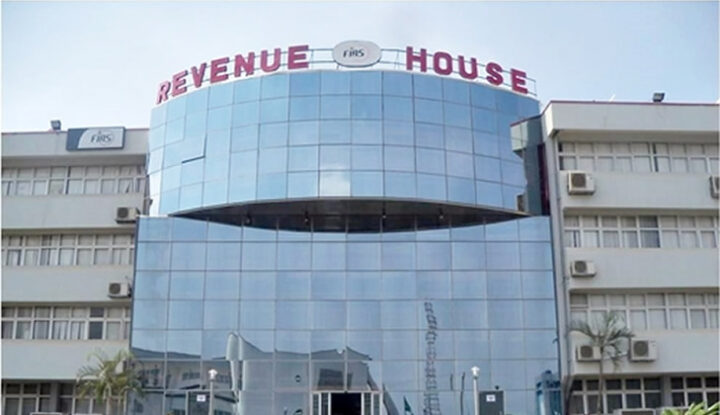The Federal Inland Revenue Service (FIRS) and the Nigeria Deposit Insurance Corporation (NDIC) are set to place the spotlight on the country’s rapidly expanding digital economy at the 2025 Finance Correspondents Association of Nigeria (FICAN) summit, a gathering that has become one of the most influential platforms for policy engagement between regulators, financial institutions, and the media. The summit, scheduled to hold in Lagos later this month, will focus on how Nigeria can harness digital transformation to strengthen revenue mobilisation, deepen financial inclusion, and build resilience in the banking sector.
For the FIRS, led by Executive Chairman Zacch Adedeji, the event presents a timely opportunity to explain the agency’s ongoing reforms aimed at modernising tax administration. With the rapid growth of fintech services, mobile banking, e-commerce, and digital payments, Nigeria’s economy is increasingly shifting online. While this shift offers tremendous opportunities for broadening the tax base, it also poses challenges in terms of monitoring transactions and ensuring compliance. Adedeji has repeatedly emphasised that the future of taxation lies in embracing technology, and the FICAN summit will allow the FIRS to showcase tools such as electronic invoicing, automated reporting, and real-time monitoring of transactions that have already begun to change how revenue is tracked and collected.

Nigeria has struggled for years with low tax-to-GDP ratios compared to other African countries, a situation made worse by leakages in revenue collection. Digital reforms being pushed by FIRS are expected to close loopholes, curb tax evasion, and expand coverage to individuals and businesses that previously operated outside the formal system. Analysts say that these reforms, if effectively implemented, could boost government revenues significantly at a time when fiscal pressures are mounting. With Nigeria working to stabilise the naira, reduce its borrowing costs, and fund critical infrastructure, improved tax efficiency has become a top national priority.
On its part, the NDIC will use the summit to highlight the importance of deposit insurance in an era where more Nigerians are relying on digital banking channels. As mobile banking, fintech apps, and digital wallets gain popularity, ensuring the safety of deposits and protecting consumers from cyber risks have become central concerns for regulators. NDIC officials are expected to stress how the agency is strengthening its risk-based supervision and enhancing mechanisms to detect fraud, manage potential failures, and maintain public trust in the financial system.
The digital economy has expanded rapidly in Nigeria, with millions of people now conducting financial transactions through smartphones and other devices. This transformation has brought opportunities but also new risks. Cybersecurity challenges, digital fraud, and operational lapses have at times undermined public confidence. Just last month, First Bank identified digital fraud as one of the biggest threats to financial inclusion, a concern that highlights why the NDIC’s intervention is critical. By insuring deposits and ensuring swift resolution in cases of distress, the NDIC aims to maintain confidence in digital banking channels, which are key to achieving wider financial inclusion.
The FICAN summit will not only serve as a policy dialogue platform but also as a capacity-building opportunity for financial journalists. Accurate and in-depth reporting is crucial to public understanding of ongoing reforms in taxation, financial regulation, and digital adoption. Organisers believe that journalists who are better informed on these issues will help bridge the communication gap between regulators, businesses, and citizens, ultimately enhancing transparency and accountability.
Industry stakeholders are already pointing out that the discussions around digital taxation and financial system safety are coming at a critical time. Nigeria is seeking to build a $1 trillion economy by the end of the decade, and experts agree that achieving such a target will be impossible without fully leveraging technology. While inflation has shown signs of easing and foreign exchange stability is improving, policymakers argue that digital adoption is the pathway to sustained economic efficiency, innovation, and productivity. The government has also indicated that its digital economy strategy will be central to driving growth, attracting investments, and positioning Nigeria as a regional leader in fintech innovation.
The significance of the summit also lies in the fact that it will foster collaboration among key stakeholders. FIRS, NDIC, the Central Bank of Nigeria, commercial banks, fintech innovators, and other agencies will all have a chance to exchange perspectives on building a digital-first economy. Many observers believe that no single regulator can achieve this transformation alone, making collaboration vital. The role of the private sector, particularly fintech companies and technology innovators, will be critical in shaping solutions that balance innovation with regulation.
As expectations build ahead of the summit, the focus will be on whether Nigeria can quickly and effectively implement policies that will unlock the full benefits of its digital economy while mitigating the associated risks. For the FIRS, the challenge is to ensure that technology-driven tax reforms translate into tangible revenue gains without stifling innovation. For the NDIC, the responsibility lies in safeguarding depositors and reinforcing trust in digital financial platforms. For citizens and businesses, the hope is that these reforms will create a safer, more efficient, and more inclusive financial environment.
At a time when the global economy is being redefined by technology, Nigeria’s efforts to align its tax system, financial regulation, and digital strategy will determine its competitiveness. The upcoming FICAN summit will therefore be more than just another policy conversation; it will be a test of Nigeria’s readiness to embrace the realities of a digital age and to use technology as a driver of long-term economic stability and growth.
Support InfoStride News' Credible Journalism: Only credible journalism can guarantee a fair, accountable and transparent society, including democracy and government. It involves a lot of efforts and money. We need your support. Click here to Donate
